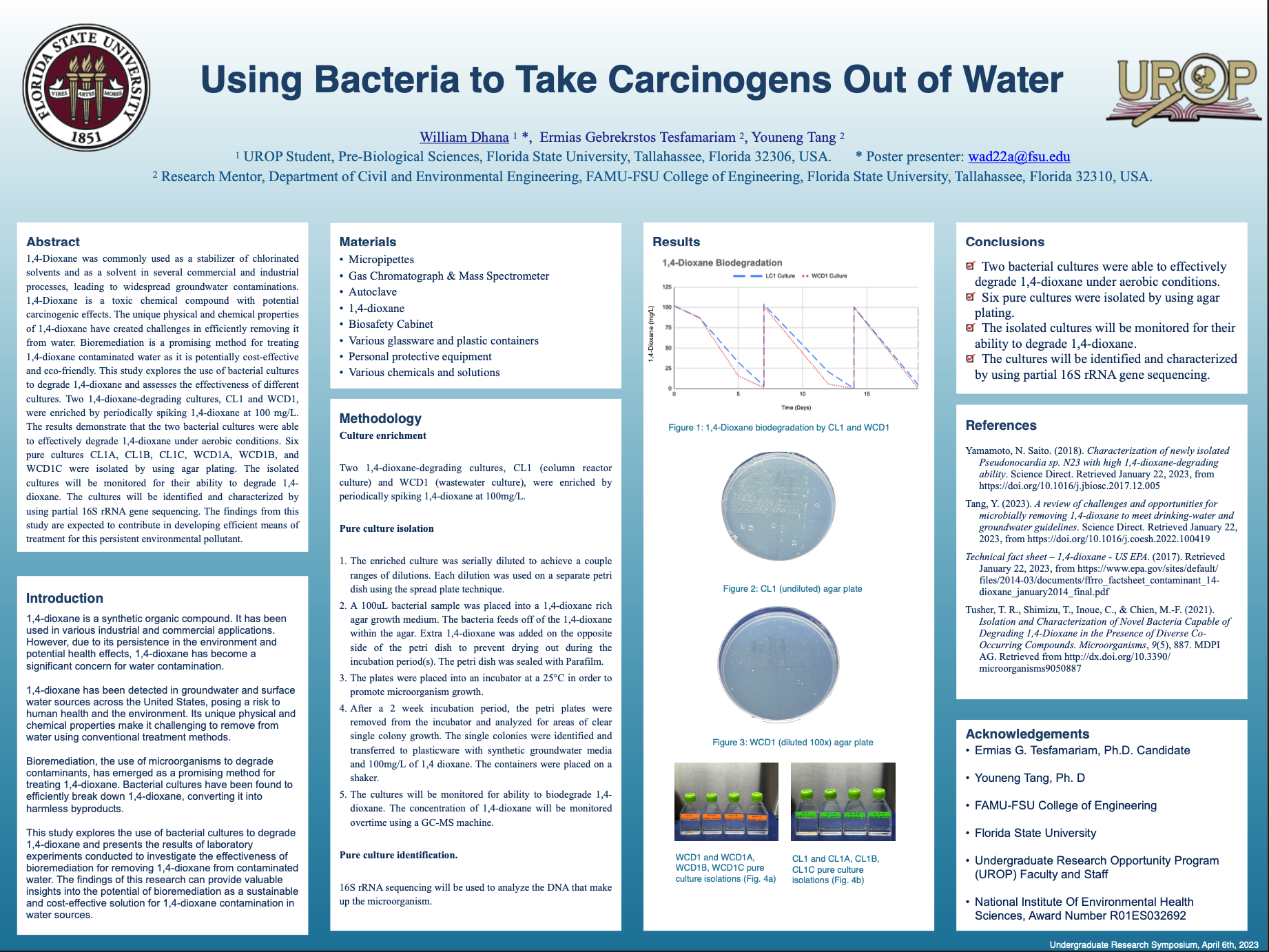Research Symposium
23rd annual Undergraduate Research Symposium, April 6, 2023
William Dhana Poster Session 3: 2:45 pm - 3:45 pm/ Poster #422

BIO
William Dhana is an undergraduate researcher and biology student at Florida State University. Originally from Palm Beach County, he spends his free time enjoying hobbies like soccer, snorkeling, and volunteering. William is particularly passionate about research and has a strong interest in pursuing medicine, with a focus on oncology. In the future, he hopes to work with children as a pediatric oncologist and make a difference in their lives.
Using Bacteria to Remove Carcinogens From Water
Authors: William Dhana, Youneng TangStudent Major: Biological Sciences
Mentor: Youneng Tang
Mentor's Department: Environmental Sciences Mentor's College: FAMU-FSU College of Engineering Co-Presenters:
Abstract
1,4-Dioxane was commonly used as a stabilizer of chlorinated solvents and as a solvent in several commercial and industrial processes, leading to widespread groundwater contaminations. 1,4-Dioxane is a toxic chemical compound with potential carcinogenic effects. The unique physical and chemical properties of 1,4-dioxane have created challenges in efficiently removing it from water. Bioremediation is a promising method for treating 1,4-dioxane contaminated water as it is potentially cost-effective and eco-friendly. This study explores the use of bacterial cultures to degrade 1,4-dioxane and assesses the effectiveness of different cultures. Two 1,4-dioxane-degrading cultures, CL1 and WCD1, were enriched by periodically spiking 1,4-dioxane at 100 mg/L. The results demonstrate that the two bacterial cultures were able to effectively degrade 1,4-dioxane under aerobic conditions. Six pure cultures CL1A, CL1B, CL1C, WCD1A, WCD1B, and WCD1C were isolated by using agar plating. The isolated cultures will be monitored for their ability to degrade 1,4-dioxane. The cultures will be identified and characterized by using partial 16S rRNA gene sequencing. The findings from this study are expected to contribute in developing efficient means of treatment for this persistent environmental pollutant.
Keywords: Biodegradation Bioremediation Bacteria Carcinogen Contaminant


